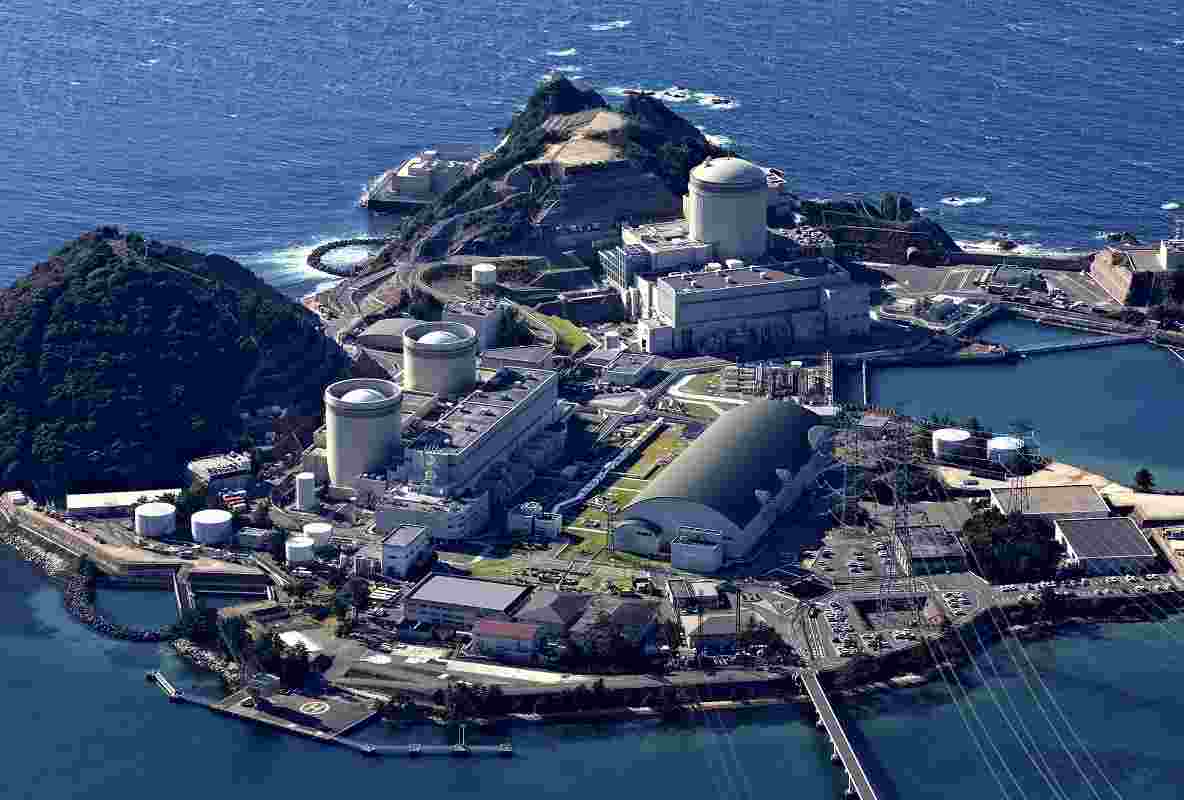
The Mihama nuclear power plant is seen in Fukui Prefecture on Oct. 26, 2022.
16:40 JST, January 14, 2023
The government is considering consolidating five bills into one in a bid to extend the life span of nuclear power plants beyond the current limit of 60 years.
The package of bills is aimed at amending the Atomic Energy Basic Law, which defines the basis of the nation’s nuclear energy policy, and forms part of government efforts to realize a decarbonized society and establish a stable electricity supply.
The package is expected to be submitted to the ordinary Diet session scheduled to convene on Jan. 23.
Ensuring the safety of nuclear power, promoting the decommissioning of reactors and introducing renewable energy sources as much as possible form the foundations of the bills.
In addition to the Atomic Energy Basic Law, deliberations will also cover the Electricity Business Law; the Law on the Regulation of Nuclear Source Material, Nuclear Fuel Material and Reactors; the Law on Special Measures Concerning Procurement of Electricity from Renewable Energy Sources by Electricity Utilities; and the Spent Nuclear Fuel Reprocessing Fund Law.
The revised legislation will state that the contribution to green transformation amid decarbonization efforts is a significant factor behind the use of nuclear energy.
The operation period of nuclear power plants is currently stipulated in the reactor regulation law. It would be stated in the Electricity Business Law under the revised legislation.
The operation period will be extended beyond 40 years upon approval by the economy, trade and industry minister, dependent on safety confirmation by the Nuclear Regulation Authority (NRA). The extension period will be 20 years, not counting the time reactors are idle due to NRA safety inspections and provisional suspension orders.
The reactor regulation law will incorporate strict safety regulations for aging reactors.
The NRA will approve an extension for reactors that have been in operation for at least 30 years if hazard assessments are conducted and long-term facility management plans are compiled within a designated timeframe.
Under the revised legislation, decommissioning work will be part of the remit of the Nuclear Reprocessing Organization of Japan, a government-authorized corporation responsible for nuclear fuel cycle operations, and electric power companies will be required to cover the cost of such work.
Top Articles in Politics
-

Japan PM Takaichi’s Cabinet Resigns en Masse
-

Sanae Takaichi Elected Prime Minister of Japan; Keeps All Cabinet Appointees from Previous Term
-

Japan’s Govt to Submit Road Map for Growth Strategy in March, PM Takaichi to Announce in Upcoming Policy Speech
-

LDP Wins Historic Landslide Victory
-

LDP Wins Landslide Victory, Secures Single-party Majority; Ruling Coalition with JIP Poised to Secure Over 300 seats (UPDATE 1)
JN ACCESS RANKING
-

Producer Behind Pop Group XG Arrested for Cocaine Possession
-

Japan PM Takaichi’s Cabinet Resigns en Masse
-

Japan Institute to Use Domestic Commercial Optical Lattice Clock to Set Japan Standard Time
-

Man Infected with Measles Reportedly Dined at Restaurant in Tokyo Station
-

Israeli Ambassador to Japan Speaks about Japan’s Role in the Reconstruction of Gaza























